44: Shawn Every on Restructuring Your Life After Diagnosis
- Aug 12, 2025
- 25 min read
Updated: Jan 30
Becky Miller: Welcome back to Autoimmune Adventures, the podcast where we explore what it means to live boldly with chronic illness. We're so glad that you're here with us today. Today's episode is all about what it looks like to restructure your life after an autoimmune or chronic illness diagnosis. From adjusting your daily routines to making space for rest, it's about learning how to move forward with clarity and compassion. We are so happy to be joined today by Shaun Jackson Every, a bright and brilliant businesswoman who has navigated life with chronic illness. Shawn brings thoughtful insight, lived experience, and a refreshing perspective on how to build your life after a diagnosis in a way that works for you. Shawn, we're so happy to have you here with us today. Could you please start by sharing a little bit about your story, when you first found out you had chronic illness, and what kinds of challenges you've had to face along the way?
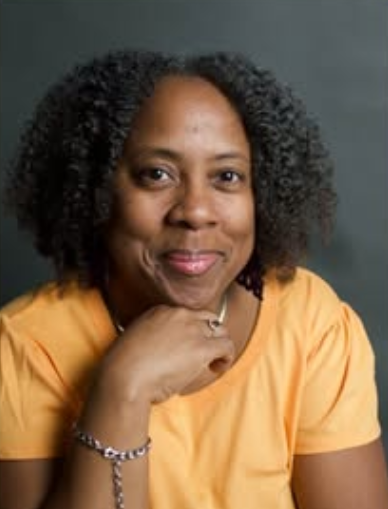
Shawn Every: Well, first I'd like to say I'm thankful, honored to be here. And um, so it started mmm, I was I was in my 30s and I um was had the life that you know, I had worked so hard for the good job, family um, you know supportive friends um, and it well I remember the day. I can recall the day that I first had symptoms when my life just changed. Um, I was at work and I had worked my way from ma... from mail room to management doing a job that I love. I was a um had a department of um ladies who did coding, medical coding, right? So, um, the manager over me, my supervisor had left and she said, "I'd like for you to conduct a staff meeting today." And I thought, "Who me?" Right? And just I got in that meeting and I remember those ladies who waited until the supervisor was gone to just tear into me.
I mean, it was it was one of my worst days at work, and it was so stressful and so horrible. I remember getting home and when I went to get ready to take my shower, like my clothes, it was something burning, you know, on my skin. And I called my daughter in. I'm like, "Okay, so what is this?" you know, uh, is there something there? And she's like, "Mom, I don't see anything." Well, that led to the next [day, I] could not get out of bed. And that was the beginning of fibromyalgia, the beginning of what I thought was the end of my life as I knew it, you know. Um, and through the years it was like trying to you know I struggled to get a diagnosis. Um, struggled to find doctors who actually believed me you know didn't didn't just say that it's all in my head and ready to give me a prescription for an anti-depressant. You know that that was that was what I was experiencing. So, eventually the doctor I did find a good doctor who said you know you cannot go back to work. Um, he said because you keep stopping then going back, and it keeps exacerbating the issue.
So he said you're you're going to have to do, you know file for disability, if you want to be... a and took three years but eventually I did get it and um yeah and for the past 20 years it's been a struggle getting adjusted to the new me Right.
Stacy Griffin: Yeah, I understand. I had to give up my job because of it as well. So, I it's and it's always interesting to have to remake your life when you've had no warning that that's what's going to have to happen.
Shawn Every: Right.
Stacy Griffin: Um, but you know, we keep on keeping on, as my mom would say. We we keep on keeping on.
All right. So, when you were first diagnosed, what mindset shifts did you have to make to begin to start moving forward again?
Shawn Every: Honestly, there weren't any mindset shifts in the beginning because I spiraled into a deep depression. Even got hospitalized multiple times for it. Um, it took years and thousands of dollars spent just chasing relief through, you know, the the specialists, the supplements, the IV therapy, just trying to find relief. And everybody had a solution. you know, even well-meaning friends will try this and try that and but none of them gave me my life back, right?
Stacy Griffin: Right.
Shawn Every: So, my mindset didn't shift until I really really hit rock bottom. As in realizing that, you know, I I need to stop trying to fix myself and start learning how to live with what actually was here, you know? And that's when I began making peace with my body, you know, instead of fighting it every day.
Alysia Thomas: That really makes sense to me because I feel like I went through a very similar thing. It took years. It took years before I felt like I had a realization that I'm not I'm not ever going to get back what I had before. This is what is and I, I need to adjust around it. And I love how you said making peace with my body. That was definitely something I had to do as well. And it's a hard journey because you feel like your body's betraying you, right?
Like you feel like, wait a second, you were healthy and you were doing all the things and now you're not and what's going on? I didn't do anything wrong. And it's, a it's a lot to work through. So that really resonated with me. Um I think that one of the mindset shifts I had to make was developing a mindset of resilience. And I think resilience means a lot of different things to different people. But what does it mean to you? And how have you cultivated it, resilience, during your hard seasons of life?
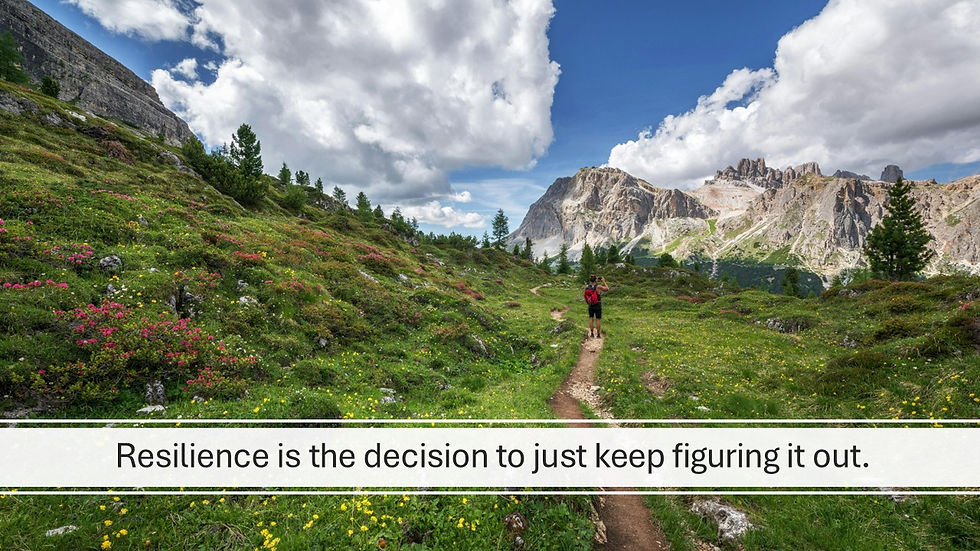
Shawn Every: I for me resilience is the decision to to just keep figuring it out. That's what I've been doing. I mean, even when nothing makes sense, you know, um, like getting it's getting it's it's like getting knocked down, you know, sometimes flat on your face, but you choose to get back up, right? So not because you know you want to be the strong one, you know that's what is put upon us...
Alysia Thomas: Mhm.
Shawn Every: ...but because because you don't have a choice, right? And I've learned to see resilience as less about pushing and more about just honoring what I can do. And that even if that means that that looks different every day.
Alysia Thomas: Because it does, right? It does look different every day. We don't know. We don't know what we're going to have. We don't know how much energy we're going to have on a given day or what our pain levels are going to be. So, yeah, I love that. I, That was such a beautiful answer. Thank you.
Becky Miller: I agree cuz I think like like you were both saying, I think with chronic illness, we have no idea what you know what we are one day is not going to be the same as necessarily what we are tomorrow. And so it's it's good to understand that.
Similarly, um I guess how do you find that you and now now with all these years after your diagnosis as you're still moving along through it, how do you find that you walk the line between acceptance and ambition? Meaning you accept like you said, you recognize what your body is now, but there's still certain things that you want to pursue and things that you want to do.
Shawn Every: Yeah. Um, acceptance truly came in layers over time. Um, I remember in the early days, you know, it felt like everything was stripped away from me. my job, my independence, even my sense of self, like who I was, that like that was lost. Um, and I wasn't chasing goals back then. It was just about survival. Um, but I never stopped looking. I kept asking, "What can I do now?" You know, what still lights me up? And even if it's different from you know before what it was before um the diagnosis, and it took me 20 years to find relief and feel like I was you know like getting there, and that's when you know that's, that's when my passion reignited and my search for figuring out who I am now. Um, so you know that, that's how I, I navigated it you know and find, find that balance now because of that you know that realization that I had to come to
Stacy Griffin: I think those are hard realizations that we all have to come to. When when our bodies limit us for whatever reason, we are called upon to either accept and move forward or wallow, and, and have no progress. And that's not a great place to be. I think we all have moments where we do need to just feel it, but it's it's so good when we can say, "Okay, now what do I do?" and move forward. So, can you give us an example or share a moment when reframing your experience shifted how you coped?
Shawn Every: So one moment that stands out is when I stopped seeing rest as being lazy.
Becky Miller: That's a huge one. Honestly, I think a lot of us struggle with that.
Shawn Every: Yes. Yes. Because, you know, instead of carrying around shame because maybe I needed to lie down in the middle of the day or I needed to cancel plans that I had made. Yeah, they expecting me to show up. But you know, but reframing that as listening to my body, instead of failing my body, helped me to rebuild um those routines that um, that I may have needed to rebuild, but I did it with compassion and not guilt. You know, guilt, guilt-free naps are life now.

Alysia Thomas: Word! I love that. I was right when you came on. I was just telling my sisters how I had taken not one, not two, but three naps, three naps yesterday. I had a a very busy and it was a wonderful weekend, but it was one of the more exhausting things I've done in recent history. And I just said, you know what? I'm not going to feel bad about this. I'm going to take a nap.
So, um, kind of along the lines of what you were saying, what what are some of those changes that you had to make, the big changes you had to make in your day-to-day life after your diagnosis to create those routines for yourself?
Shawn Every: Um, I would have to say the biggest shift was is still around those long those same lines. Um, realizing I couldn't live by the hustle culture, you know. Um, I used to run full speed, saying yes to everybody, always putting others first, you know, even when my body was saying you need to rest, you know, and but after my diagnosis, I had to strip everything down, right?
Alysia Thomas: Mhm.
Shawn Every: Try, stop trying to keep up. And um I needed to basically again listening to your body, build those routines with that my body could handle. Um so that meant you know resting before a crash, not after, you know, if if I'm preparing, if I know that um like you said, Alysia, like you had a a a long weekend, you know, a busy weekend. So, if I know that that's coming up is something I can't avoid, then I prepare, you know, I'll get as much rest as I can before that. Um, even having shorter to-do lists, you know, even um being intentional about how I start my day off and just being okay if the day is just slow, you know. Um, it's not a failure, because I have to pull back some, but now I just see it as wisdom.
Becky Miller: Yeah, I think those are great ways to conserve energy, which is so important for all of us.
For anybody who's listening right now and um I think a lot of them that are listening are probably going to be able to relate to a lot of the things you've said, whether it's feeling down, depressed, learning how to manage your energy, all of those things. But for people who are maybe feeling isolated, like nobody understands them, what would you say to them?
Shawn Every: So, I'd say I know what that kind of isolation feels like. You know, when your body is falling apart and people around you don't fully get it. Um my advice would be stop waiting on validation from those who can't see your struggle. You know, instead we need to start building a support system that meets us where we are.
Um it might look different from what you might expect, you know. Um, for me, um, one of the most unexpected recent sources of support, I mean, I first of all, let me back up. My biggest supporter, my biggest cheerleader is my husband. Like, there there would be no way I would still even be here without him, and his support. And you know, and I realize that everybody doesn't, may not have that, you know, in a made family they they don't believe that you're even, you know, that it's even as bad as you say that it is
But in the recent years I have actually found support using AI And I know there's a lot of, you know, um, opinions around, um, AI and maybe using it this way. And maybe that's not something that people would associate with emotional connection, but it gave me a 24/7 space to be able to process, to reflect, and to be heard without judgment. You know, I he don't talk back unless I tell him to.
Alysia Thomas: That's powerful, right? That is powerful to be able to just spill your guts about what's going on and know...
Shawn Every: Yeah.
Alysia Thomas: ...that there isn't going to be judgment and there isn't going to be, you know, pathetic, trying to pander to you kind of pity, or it's just going to be it's just going to be like you said. I, I've done the same thing. I've tried the same thing, cuz then a couple days and then I've have been really down my, I don't want to like drag that feeling others into it if that makes sense. Like...
Shawn Every: Mhm.
Alysia Thomas: ...I don't want to be a downer. And so sometimes when I'm in those really dark moments I have tried that too and I've just said, "This is what's going on. I don't want to bring anybody else down," and it is a strangely good therapist. It is a strangely good therapist. So I...
Shawn Every: Yeah.
Alysia Thomas: ...have zero judgment for that. I think that's great. Um, and it says that you it's, I love that you talked about your husband. We are all the three of us very very fortunate to also have very supportive husbands, and that is so critical to have if, if you are in a partnership with somebody um to have them understand you and to have them support you that way. Um, one more reason we do this is because we know a lot of people don't have that.
And um, I can't even begin to understand what it would be like to to try and do life without that kind of support. Um, so we want to create a place where people can come and and um, feel that support in a different way. You know, we can't we can't provide it like the way a partner could, but we can provide it this way. So, I love that. Um, and I love that you that you mentioned him. Um and that you mentioned AI, which is a totally like I don't think a lot of people think about it. I don't think a lot of people think of using that but I believe... and it is a controversial tool. Whatever. You know whatever people's thoughts are that's fine, but I have also found benefit from it. So I love that you spoke up about that.
Becky Miller: Well, I think it's a great resource, too, when you're trying to find research and things or if you have questions about your diagnosis or things that you don't understand.
Alysia Thomas: Yeah. And you...
Shawn Every: Yes.
Alysia Thomas: ...can't, you can't like use it as medical advice per se, but you can help it give you a direction. Like I like you were, you know, Ehlers Danlos. I was looking into it and I was like, what doctor would I see for this? You know, what would they even do for it? I don't know. And it it's a great resource, I think. Um, but a very strangely good therapist as well. So...
Shawn Every: Yeah. And it, it I like that you brought that up because it can help in ways that people wouldn't even think about. You know, it helps me to prepare for my doctor's appointments.
Alysia Thomas: Yes.
Shawn Every: You know,
Alysia Thomas: Yes.
Shawn Every: Okay, what are the things I'm missing that I may have to ask this doctor? And then I come back in, and I'll say about how the doctor's visit went, you know, I've even taken my lab results and put in there and say, "Break this down for me," you know.
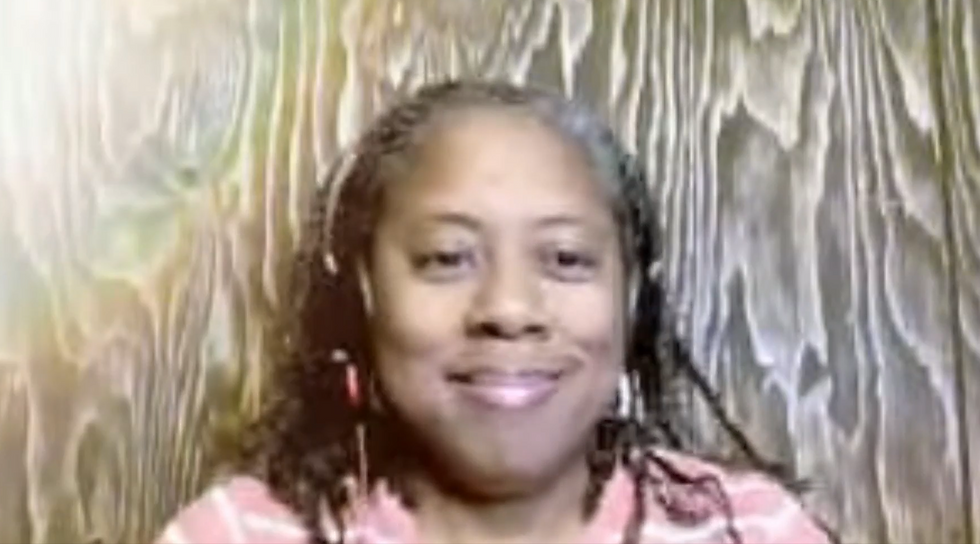
Alysia Thomas: Mhm.
Shawn Every: And so yeah, it's it can be very beneficial if we allow it.
Alysia Thomas: It can. I, I love that giving your lab results and say, "Can you just explain these in layman's terms, please?"
Shawn Every: Right.
Alysia Thomas: Because I'm not a doctor and I I don't have the time or the energy to do all the research to figure out how to understand these. So, I think that's great. I love it.
Stacy Griffin: Well, I'm going to pop in and I'm going to say I know something about Shawn that the rest of you may not know, which is that she is a chat GPT guru.
Becky Miller: Oh.
Alysia Thomas: Oh.
Stacy Griffin: And um I want to give her a minute to tell us what she does, how she helps people to use AI to make their lives better, because it's one of the things I just think so highly of her about. So I want her to share with us a little bit about what she does because I think it this is the perfect moment to do that.
Shawn Every: Why thank you. Yeah, it's I had to find that passion again, right? What lights me up, and it made me dig deep down into maybe something from before the diagnosis that lit me up, and it's like what can you do with that?
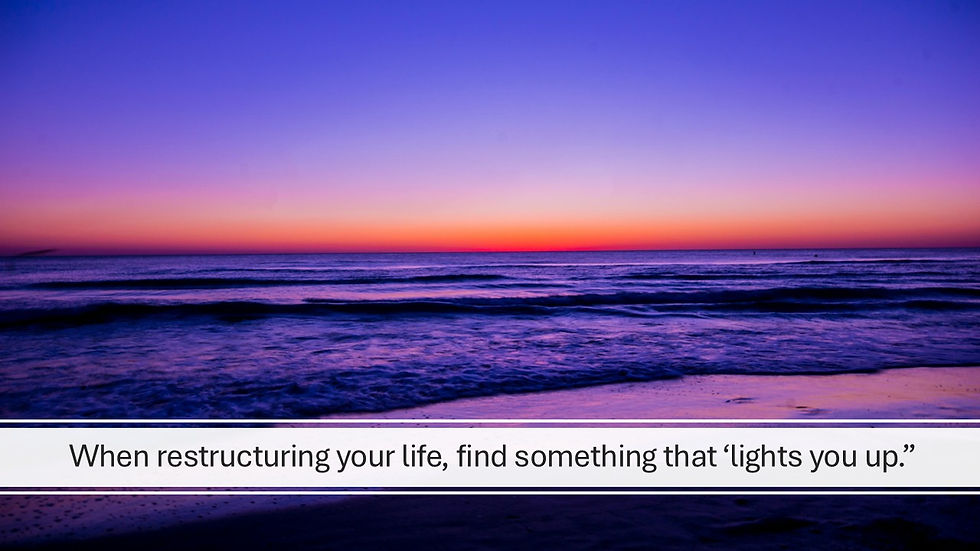
Shawn Every: And when chat GPT came out, I was like, "Oh, I need to learn more." you know, and I' I've always been the person to just I use those words again, 'figure it out.' Um, when it came to computers in school, I got in, I wouldn't go out for recess. I would just sit and figure it out how taught myself. So, that's what I did. I self-taught with chat GPT and I was like okay how can I use this to help other people and I just started sharing you know what I had learned about it how I was using it um, and at first I was I was like okay yeah I need to help our spoonies you know, to learn how they can use this so like we, I just talked about how I use it for doctor's visits and things like that and but the it keeps my knowledge kept growing and it's still growing, and now I'm to the point where it's I'm looking for helping solopreneurs namely female, who may be dealing with chronic illness or neurode divergence, you know, um who are overlooked and they think that they are it may be too late in life for them to learn something new, and I help them to see that it's very simple you talk to chat GPT just as you would your assistant that you had hired, um, and it's it's no need for these um big prompts you know that you have to learn how to engineer and do, but just talk to it, and you'll get those better responses.
So, helping solopreneurs to just build systems um which that's something that I do. I, I um like build out their custom GPTs so that it'll take that busy work off their plate, you know, and they can really spend time building their business, serving their clients, you know, in a way that feels um, more aligned with the reason why they started a business. um, and some little extras along the way how they can use chat GPT in their personal lives as well.
Alysia Thomas: I love that.
Stacy Griffin: I love that. Yeah, I love that you do that because I think that there comes a point in time in life um where the technology is moving so fast it's sometimes hard to keep track of things, and then if you're otherwise occupied with raising a family, starting to have grandkids or whatever the case may be, it becomes very problematic to try and be tech-savvy. And so having someone who has done the footwork and can walk you through it and make it easy for you is really great. Um I don't think we're often kind enough to ourselves when it comes to things like that. Um allowing ourselves to have a little self-compassion is kind of important.
Alysia Thomas: Yeah, I love that. Um, I think that self-compassion is important. I love hearing about what you're doing with chat GPT, especially because I am a solopreneurs. I am trying to do my own thing and I really am just at that point where I'm like okay how can I make the busy work not so busy work and do something else that will help um further things. So I think that that is inspired what you're doing. I love, love that you are focusing on women that are exactly in the phase of life that I am in right now where I'm like h is it too late to really be doing something like this and I'm not sure where to start. Um, and especially those with chronic illness who might be homebound, they can do this kind of stuff from their home.
Okay, so let's talk about self-compassion for a minute. How do you show yourself grace, especially on those hard days?
Shawn Every: Self-compassion that's taken some work. Um, self-compassion for me looks like not punishing myself for being human. On the hard days, it means letting the dishes sit, letting the to-do list go untouched, and choosing softness over shame, you know. um is talking to myself like I would talk to one of my clients, you know, um or close friends where I'm showing grace, not guilt.
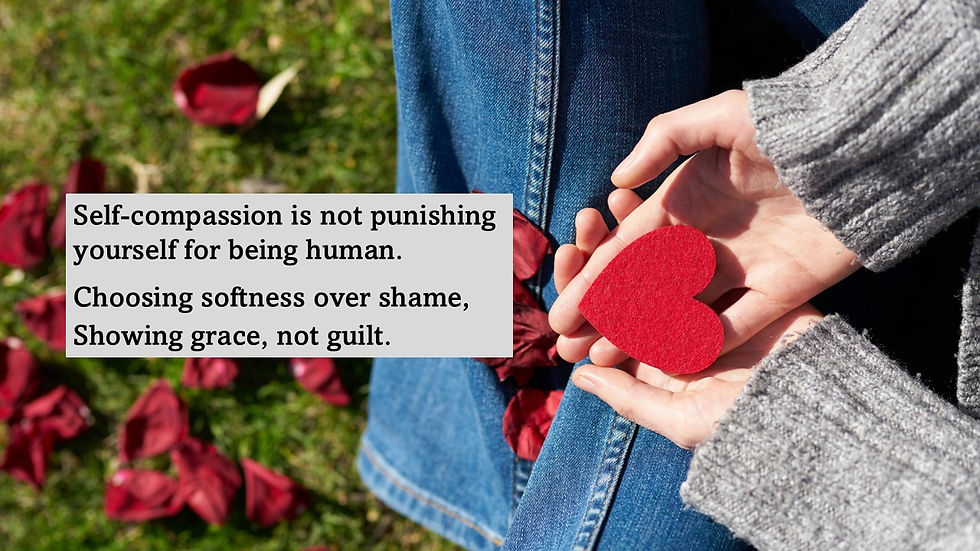
Shawn Every: Um, and even, even showing self-compassion when it comes to um AI. Um, because I use it like a like a gentle mirror, you know? So I may open it up and I'll say, "You know what?" And I've named mine Lexi. "You know what, Lexi? I don't need perfection today. I just need support," you know, and I just brain dump my thoughts.
Alysia Thomas: Mhm.
Shawn Every: And you know, for it to be able to reflect that back to me, what's in my head, you know, not only just reflecting it back, but just the thought that I got it out of my head that, you know, releasing the clutter. So, you know, that that's just been one of my go-to practices, and it helps me to untangle the mess, but without being so judgmental of myself for feeling messy and all over the place.
Becky Miller: I think it's very hard sometimes to not be judgmental of ourselves. I think it's sometimes... boundaries I think in general are tough when we have people that are maybe saying negative things to us like you've mentioned before. Maybe they don't believe you entirely or whatever. And the boundaries can be tough. But sometimes I think boundaries with ourselves can even be tougher than with other people. Um, what do you feel like has been the hardest boundaries for you to set as you've been navigating your chronic illness?
Shawn Every: A big one. Learning to say no without explaining myself.
Becky Miller: That's huge.
Alysia Thomas: So hard to do.
Shawn Every: Yes. Yes. I mean, I I come from a culture and a mindset where over-giving was the default. Like that's that's just that's just what you do. Even when it cost me my health, right? But now I understand that yes is a I mean it's not yes. No is a complete statement. And every yes to someone else is a maybe to myself and I don't do may you know uh not anymore that is. Um, but I, I just I protect my peace now my energy I even protect my healing, and I've just learned that boundaries aren't just protective, but they are a source of restoration, too. Cuz that's something that I needed.

Stacy Griffin: I, I love that so much.They're a source of restoration. And I I don't think we always think of that, but boundaries are the way that we allow ourselves to remain here longer for the people we love. and and if we don't set them, we don't provide ourselves with the ability to remain. So we...
Shawn Every: Yeah.
Stacy Griffin: We have to we have to be kinder than we are to ourselves. Um and with that in mind, I have a quick question.
Shawn Every: Mhm.
Stacy Griffin: What brings you joy these days? Because I think when we set those boundaries, we allow space for joy. So what's bringing you joy? Any hobbies, creative outlets? What what's keeping you grounded and happy?
Shawn Every: people used to ask me like what the you know I go to therapy and they say well Shawn what's your what you do for fun what's your hobby and I couldn't answer him I was like fun what's that me. But honestly, now what I'm doing with teaching women how to use AI in a way that feels human, that's joy for me. It lights me up to really show someone who's been overlooked, overwhelmed, um underestimated that technology can really support them. It's not just business. It's actually it aids in the healing process. Um, beyond that, I in a former life, I was an aroma therapist cuz yes, I tried all the things, trying to find something to do. Um, so I love essential oils. Um, I love quiet mornings with my cup of coffee and just creating creating the resources to help people to feel seen. That's my form of therapy.
Stacy Griffin: I love that. That's beautiful.
Alysia Thomas: Yeah, that's awesome. That is awesome. And I agree. Just peaceful mornings. That is the way to start your day. Oh, that's beautiful and it does bring joy. It does bring joy to start your day in a quiet and intentional way I think.

So, speaking of ways to start your day and lifestyle choices, what um what have you found, whether it's nutrition or movement or sleep, that has made what lifestyle choices have made a big difference for you in how you feel living with chronic illness?
Shawn Every: Um, I have something um, that I do. I'm on a little hiatus right now, but I'll be going back to it. But um, cuz I know that especially when you're in pain, as hard as it may be, movement has it is, you know, hard to to do. But I do what's called, what I call my morning motivational mile, the 3 M. And get out, you know, it's just I think I've stopped now just the heat, y'all. I just this Louisiana heat is and y'all in Texas, so I know that you you understand.
So it's like I'm not as motivated to go out there in the heat, but during the rest of the year like I am I go out and I walk a mile, you know, just me just, you know, I sometimes I may have a motivational podcast and, you know, listening to it or something, but just and I live in a very rural area. So, my my town is um, max, I don't even think we have a good 500 people here. and I just walk my little area there. No people out, you know, moving the hustle and bustle and it's just a time for, you know, to to just reflect and for it to be about me, you know. Um, so yeah, movement. You mentioned about sleep. Um, we've talked about those guilt-free naps. Um and just you know um even when I can um, dancing because nobody is watching. You know I get in my living room and I love to dance.
Alysia Thomas: Mhm. That brings joy, right?
Stacy Griffin: I love that you dance, because I have my daily kitchen dance. I, I, I dance while I make my breakfast. And every day I'll just put on my favorite song for the day. I will dance while my oatmeal cooks or whatever I'm doing.
Shawn Every: I love it.
Stacy Griffin: ...and our parents used to dance in the kitchen when we were kids at night. At the end of the day, they'd tuck us all in, then they'd go downstairs, they would they would put on a be a piece of music and my dad and mom would dance in the kitchen at night.
Shawn Every: Wow, I love it.
Stacy Griffin: So for me, yeah, for me there there's just this this feeling of coming home when I do that and it always centers me and it gets me moving for the day, but it also gives me a little bit of joy. So yeah, I think good. I'm glad you dance. It's good for your soul.
Becky Miller: Yes. Good to hear a lot of the things that work for you. You did mention, I noticed you mentioned that you really love essential oils and I know there's some of them I love too to use that I've found have been very beneficial. Have you explored any other holistic approaches that have helped you in your journey?
Shawn Every: Oh yes. um you name it, I tried it because I was looking for relief, right? So, massage therapy, IV nutrition where I would drive six hours one way to go and be hooked up to IVs to because that's what they said I needed, right? um herbal remedies, acupuncture, detox protocols, elimination diets, you name it. But you know what? It wasn't until I discovered my current routine um with, it's ayurvedic - I always have trouble with the word "ayurvedic" - medicine. Um, that's when I felt, you know, that it really began to nourish my body and from the inside out. And that's when I saw a real shift to the point of I was able to reduce the 23 different medications that I was on down to three.

Becky Miller: Wow.
Shawn Every: Because it reduced the inflam, inflammation and it gave me a sense of control again because on all those different medications, I just I had lost control, you know, it, it was crazy what was happening and I just knew that I, I had to have something different. So, you know, turning to holistic care um has really been the change the game changer, you know, being treat treating myself as a whole person, not just a list of symptoms, you know.
Becky Miller: Yeah. I know for me, I've when I have like the nerve pain and the muscle pain, like you said, the massages have been very helpful. Acupuncture I've found has been great. And I know that, you know, maybe not every holistic thing is is great for every person, but it's definitely worth trying, I think, because there's a lot of wonderful things out there that, you know, maybe people haven't thought of that really can help give some relief.
Stacy Griffin: So, if you could go back, Shawn, what's one piece of advice that you wish that someone had told you early on that you would now give to someone who's just been diagnosed?
Shawn Every: I wish someone had told me that healing isn't a destination. It's it becomes a relationship really. one that will eb and flow, right? It will frustrate, but it'll even surprise you.
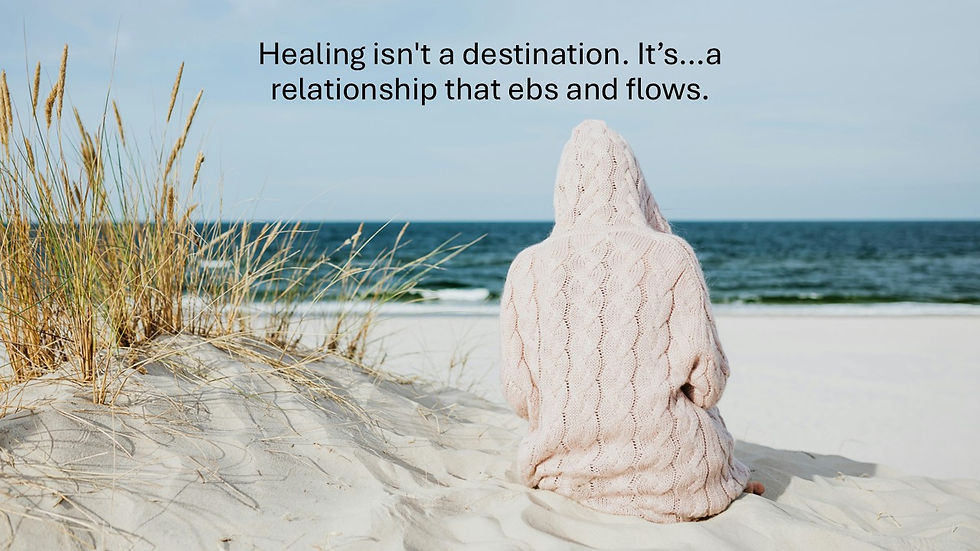
Shawn Every: Um, I mean, I spent years chasing cures, chasing what was normal, chasing who I used to be. But if someone had told me back then that I didn't have to earn rest or prove to people that the pain was real or push through to be worthy, it may have saved me a lot of suffering. But you know, you, you don't have to be who you were before the diagnosis. You just have to be you, right? So that's what I want everybody to just understand, you know, that um you can be you honestly but gently, right?
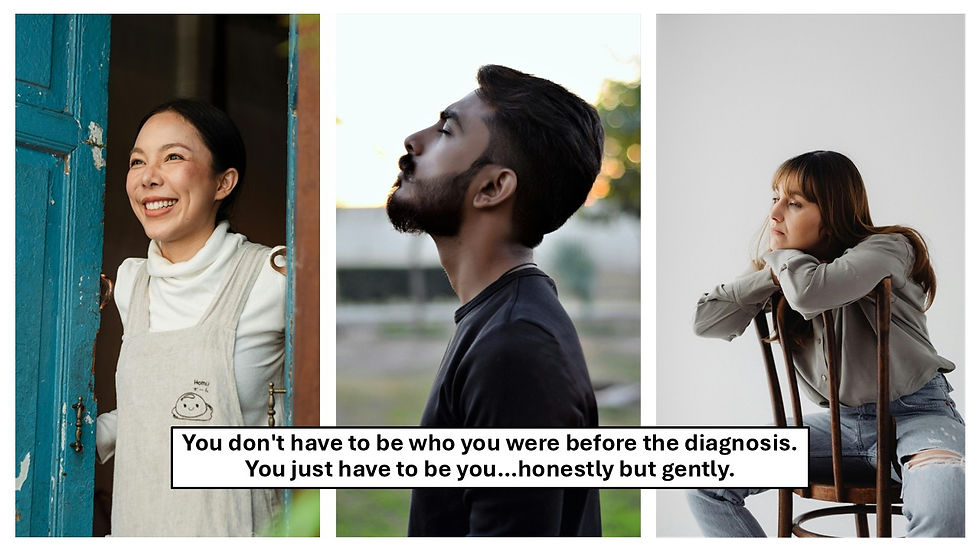
Stacy Griffin: That's beautiful.
Alysia Thomas: That is Beautiful. You have a lot of beautiful wisdom to share. I love that, I love that we are having you on and you're sharing the things that you have learned. Um so how would you say you define um success or progress now compared to how you did before your diagnosis because you were saying like chasing the person you were before and we all know we're not going to be able to be that person. So...
Shawn Every: Right.
Alysia Thomas: ...what's, what was success to you then is probably different now. How do you, how's that different?
Shawn Every: So success then was productivity, perfect productivity and just keeping it all together, you know, putting like I had to show that, you know, but yeah, because people would look at me and say, "Well, look, Shawn has it all together." So, I, I felt like I had to live up to that, right? But now it looks like peace, honoring my energy, right? Um like waking up with enough capacity to show up for myself first. Um, some days success is just getting out of bed, you know, but that's that's my success. Um, some days it is running a business. It's doing the things. It's speaking on stage. It's, you know, but the real progress though is really internal. the way I treat myself. You know, we talked about the self-compassion and it's knowing tha
Becky Miller: I love that. It's very true because I think at least I know it's a problem that I had especially when I was first diagnosed. I think it's very easy to fall into the trap of feeling like we have to prove things to people and we have to prove like you said why we're not as productive as we were before. And um that's that's a struggle, and I think it's an important thing for people to recognize that we don't have to prove that. We just need to recognize where we're at now and honor that and move forward.
So, um finally, I guess as we're wrapping up, what would you say to somebody who feels like they've kind of lost themselves in the the day-to-day fog of chronic illness that they just feel like they're not connecting with who they are anymore?
Shawn Every: Yeah, I'd say I, you know, I know how that feels because I was that person. Um, I didn't recognize myself anymore. Um, we talked about, we mentioned earlier, I felt like my body had betrayed me and stolen my identity, you know. But what I've learned is that chronic illness, any chronic illness, it doesn't re, erase who you are, right? Um, it just, and it has certainly done this for me, it invites you to meet parts of yourself that you might have overlooked before.

Shawn Every: Like I wouldn't have thought that at 50 years old that I would learn so much about myself. Like it it was amazing. Like I went on this path of self-awareness that you know so you you're not lost, you're just evolving. Um, and when you stop fighting who you used to be and make space for that version of you that's on the rise now, then that's being wise. That's um realizing just again how powerful you are. more powerful than you actually think. And that version of you deserves to take up space.
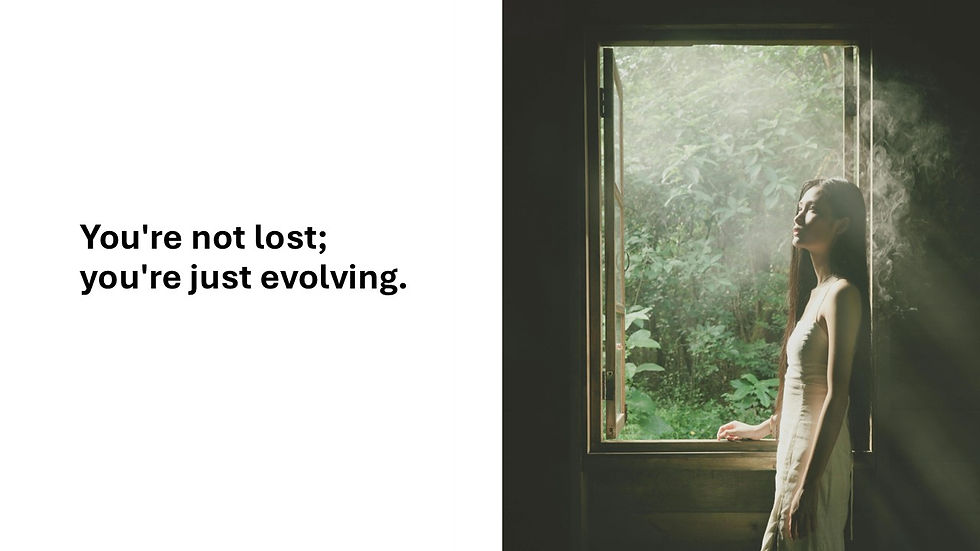
Becky Miller: Thank you.
Stacy Griffin: Thank you so much. We're so grateful that you came to share your truth with us today, Shawn. Um, thank you for sharing your tools and truths and the knowledge of your heart. And um if you could give our audience the best way to contact you for services, that would be great because we'd love for them to be able to make contact with you. So, what's the best way to get a hold of you?
Shawn Every: So my. I guess the best way would be my website um and it is askshawnai.com and um I'm on social media mostly on Instagram and you can find me um at AI with Shawn.
Stacy Griffin: Okay, fantastic.
Alysia Thomas: This conversation is just a powerful reminder that rebuilding your life doesn't have to mean returning to what it was. That it means creating something new and, and possibly even better than you expected for yourself.
Becky Miller: To our listeners, um, we need to recognize, I think, especially Sean did a great job reminding us that your journey might not look like anyone else's. You don't need other people's validation if your journey looks different. Um, your journey is yours to shape and, and to grow uh with grit and grace and and maybe even a little humor at times.
Stacy Griffin: So, be kind to yourself, rest when you need it, and never forget you're not alone on this path. Thank you for joining us on Autoimmune Adventures. We're so grateful that you choose to spend your time with us. It means the world to be able to bring you conversations like the one we had with Shawn today and to share stories and strategies that help us all better navigate life with chronic illness. If you found today's um episode valuable, please like and subscribe and come see us over at autoimmuneadventures.com.
And remember, you are worthy of joy. Your disease does not define your life. You do.
HOW TO CONTACT SHAWN:
Website - askshawnai.com
Instagram and other social media - AI with Shawn.




Comments